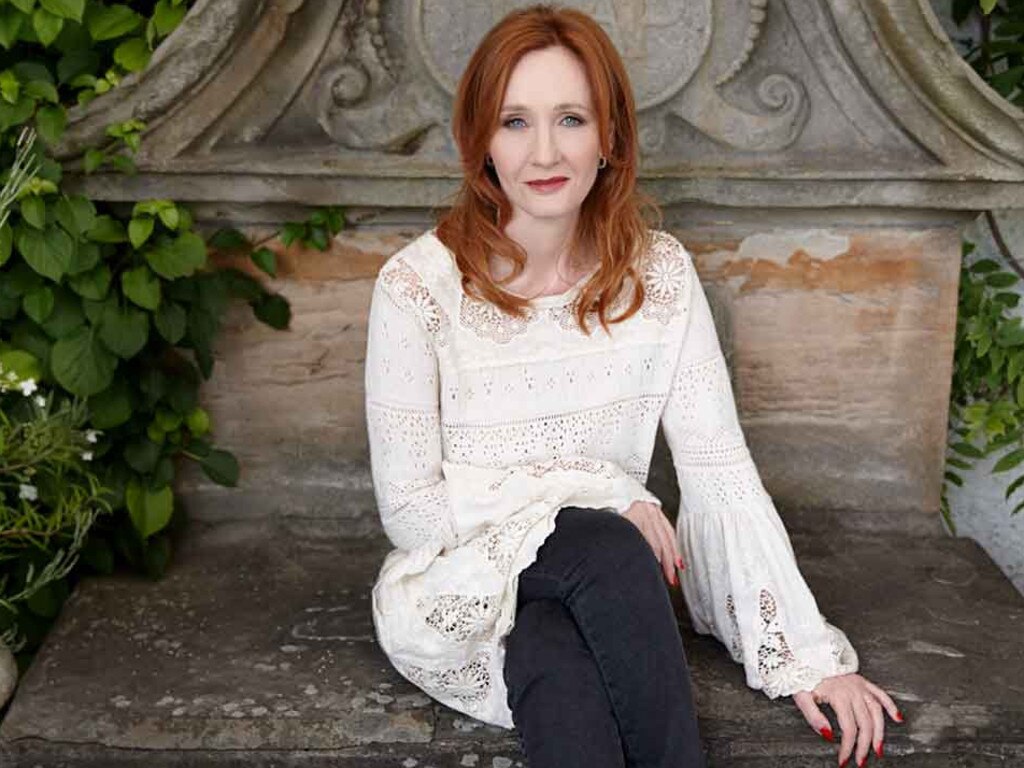
In a weekend interview with The Times, Tony Blair didn’t shy away from telling his party to resolve the conflict. “The polls might say voters don’t care,” he said. “But if you dig a little deeper, what they are really saying is ‘we don’t like all this stuff that is being shoved at us’. They don’t want a situation where women can’t talk about being women.” Blair mentioned advice from his son: “Leo always says to me, ‘Don’t go there, Dad. There are feelings and there are facts, but right now feelings are more important.’ ”
Leo Blair is right about feelings. It is understandable that feelings have taken centre-stage given the complex, heart-rending, painful and often tumultuous position a young trans kid – and their parents – confront in a world grappling with trans feelings and biological facts. In that clash all kinds of feelings erupt. JK Rowling has worn the worst of the hatred and threats of violence that emanate, one assumes, from a small but vocal section of the trans community.
Last week it was Adele’s turn when the singer won an award for best artist of the year at the Brit Awards. The award is a new gender-neutral category that replaces best male and best female artist. Accepting the award, Adele said, “I understand why the name of this award has changed but I really love being a woman and a female artist. I do. I am proud of us, I really, really am.” Though the audience cheered, different feelings were expressed online. Twitter critics said “her cancellation letter is in the mail”, accused her of being a TERF – a trans-exclusionary radical feminist – and a transphobe for using her platform “to call for the destruction of the trans community”.
Not all feelings are equal in this debate. It should be possible to express compassion, empathy and concern for trans people and also condemn the illogical hatred aimed at Adele and others. What the singer endured publicly is being endured by many others privately with devastating consequences for their careers. The wretched witch-hunt of women who want their biology recognised, not expunged, is barbaric.
British Labour MP Rosie Duffield said last week she was considering defecting to the Conservative Party because Labour leader Keir Starmer has refused to acknowledge that only women have a cervix. Starmer’s view is this is “something that shouldn’t be said; it is not right”. Duffield believes biological women should have the right to access some spaces that are not open to those who are born male.
A PhD student is suing Bristol University for failing to protect her from abuse and intimidation by trans activists who branded her a transphobe. Raquel Rosario-Sanchez, a feminist writer who specialises in male violence against women, had a mental breakdown in 2019 and couldn’t finish her thesis. Trans activists targeted her for believing female-only spaces such as change rooms and domestic violence shelters should be for biological women only. Disciplinary procedures against one trans student who targeted her were dropped after the student arranged protests to disrupt the hearing.
Rosario-Sanchez described the process as “dystopian and humiliating”. “I was being cross-examined by a barrister about chairing a feminist meeting and for holding feminist views,” she told The Times. One of her supervisors resigned from the university, complaining administrators “allowed the disciplinary hearing to be sabotaged”. “All we want to do is have a conversation (about gender issues) … so we can come up with solutions.”
Alas, the only road to solutions is via the facts. The first hard but inescapable fact is that rights collide. There is no utopia where everyone gets what they want. Accommodations must be made if rights are to be given to one group without trampling on the rights of another group.
The next fact is that no right is absolute or unconditional. Even the right to life is qualified, for example by the right of self-defence. The trial of Northern Territory policeman Zachary Rolfe shows how difficult it is to find that balance. Where did Kumanji Walker’s right to life end and Rolfe’s right of self-defence start? Where does a woman’s right to an abortion stop and a fetus’s right to life start? It is not my task to explore these thorny issues, only to point out we have negotiated some kind of accommodation in these scenarios where rights conflict.
There needs to be an accommodation between women’s rights and trans rights. That involves giving the fullest expression reasonably possible to trans rights while still asking that those rights be qualified where they cause unreasonable conflict with the rights of others.
The right of biological women and girls not to be hurt or disadvantaged when playing sport against biological males, especially body contact sports, deserves protection even if this limits the rights of trans women.
The collision of rights is most difficult and poignant in the case of trans children. Liberal politicians in Australia are as fluffy as the British Labour Party. Dave Sharma and his fellow floor crossers no doubt were well-motivated when they defended the rights of trans children last week. Unfortunately, their sweet-sounding bromides offer no clue to finding an accommodation. What, for example, do Sharma and co say to the parents of pubescent girls who are angst-ridden enough about their own sexuality without having to share a tent at a Girl Guides camp with a 15-year-old biological male who identifies as a girl? Or about the rights of parents who send their daughters to a single-sex school deliberately and perhaps for religious reasons, and want the school limited to biological females? Or to devout Muslim parents who don’t want their 12 or 13-year-old daughters to share toilets or dressing-rooms with biological males?
It is a complex task to find the right accommodation between competing rights. But surely that is what civilised and thoughtful people must do if we want to move on from the shameful witch-hunts by activists and unhelpful sweet-nothings from politicians.








I am in London again and the newspapers are filled with the same fraught conflict between biology and gender that they were a few months ago. The conversation will likely be the same in another few months, or another year or two, or more. It will move on only once people of goodwill recognise this clash between the rights of biological women and trans women won’t magically resolve itself or go away.